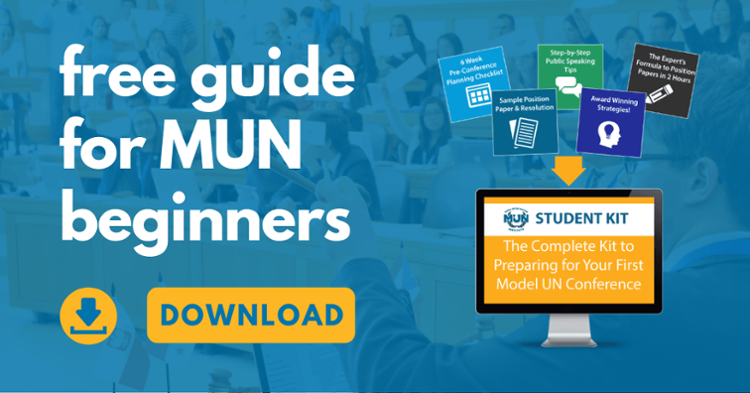Table of Contents
- Introduction to Model United Nations (MUN)
- History of KACMUN
- Benefits of Participating in KACMUN
- How to Prepare for KACMUN
- Understanding the Committee Structure
- Research and Position Papers
- The Art of Debate
- Diplomacy and Negotiation
- Rules of Procedure
- Award Categories
- Tips for a Successful KACMUN Experience
- Testimonials from Past Participants
- Frequently Asked Questions (FAQs)
- Conclusion
Introduction to Model United Nations (MUN)
Model United Nations (MUN) is an academic simulation of the United Nations, where students take on the roles of diplomats and represent various countries. It offers an excellent opportunity for students to enhance their diplomatic, negotiation, and problem-solving skills. KACMUN, short for Korea Advanced College Model United Nations, is a popular MUN conference designed especially for beginners.
History of KACMUN
KACMUN was established in 2005 and has since grown into one of the most prestigious MUN conferences in Asia. It provides a platform for students to engage in meaningful discussions on global issues and fosters a spirit of international cooperation.
Benefits of Participating in KACMUN
Participating in KACMUN offers several advantages for students:
- Skill Development: KACMUN helps improve public speaking, critical thinking, and research skills.
- Global Awareness: Delegates gain a deeper understanding of global affairs and international relations.
- Networking: KACMUN connects students with peers from diverse backgrounds, promoting cultural exchange.
- Leadership: Delegates learn how to lead and collaborate effectively within a team.
- Resume Enhancement: Participation in KACMUN is an impressive addition to one’s academic portfolio.
How to Prepare for KACMUN
To excel in KACMUN, preparation is key. Here are essential steps:
- Research: Thoroughly understand your assigned country’s stance on global issues.
- Position Papers: Write a well-researched position paper outlining your country’s policies and solutions.
- Public Speaking: Practice delivering speeches and articulating your points clearly.
- Debate Skills: Familiarize yourself with parliamentary procedure and rules of debate.
Understanding the Committee Structure
KACMUN consists of several committees, each addressing specific global issues. Delegates must choose a committee that aligns with their interests and expertise.
Research and Position Papers
Delegates are required to submit position papers before the conference. These papers outline your country’s perspective on the agenda topics and serve as a foundation for debate.
The Art of Debate
During KACMUN, delegates engage in debates where they defend their country’s position on various issues. Effective debate involves persuasive argumentation and the ability to adapt to changing circumstances.
Diplomacy and Negotiation
Diplomacy and negotiation are crucial aspects of KACMUN. Delegates must work with others to build consensus and find diplomatic solutions to global challenges.
Rules of Procedure
KACMUN follows a specific set of rules and procedures to ensure a structured and fair debate environment. Delegates should familiarize themselves with these rules.
Award Categories
Outstanding delegates at KACMUN have the chance to receive awards in categories like “Best Delegate,” “Best Position Paper,” and “Best Speaker.”
Tips for a Successful KACMUN Experience
- Be Prepared: Research your assigned country and agenda topics thoroughly.
- Engage Actively: Participate actively in debates and engage with fellow delegates.
- Stay Diplomatic: Maintain a respectful and diplomatic tone in all interactions.
- Network: Build connections and make friends with delegates from around the world.
- Have Fun: Enjoy the experience and the opportunity to learn and grow.
Testimonials from Past Participants
“I participated in KACMUN last year, and it was a transformative experience. I gained confidence in public speaking and met incredible people from different countries. KACMUN truly broadened my horizons.” – Sarah, University of XYZ
“KACMUN taught me the importance of diplomacy and collaboration. It’s not just about winning debates but finding solutions that benefit everyone.” – John, ABC College
Frequently Asked Questions (FAQs)
- Who can participate in KACMUN?
- KACMUN is open to high school and college students interested in international relations and diplomacy.
- How do I choose my committee?
- Delegates can select their committee based on their interests and prior knowledge of global issues.
- Is prior MUN experience necessary?
- No, KACMUN welcomes beginners and offers guidance throughout the conference.
- What is the registration process like?
- Visit the KACMUN website for registration details and deadlines.
- Are there scholarships available?
- KACMUN may offer scholarships to deserving participants. Check the website for updates.
Conclusion
KACMUN provides a unique opportunity for students to dive into the world of international diplomacy and debate. It’s a platform where individuals can learn, grow, and make lasting connections. So, if you’re ready to embark on a journey of diplomacy and global awareness, join KACMUN and be part of this enriching experience.
